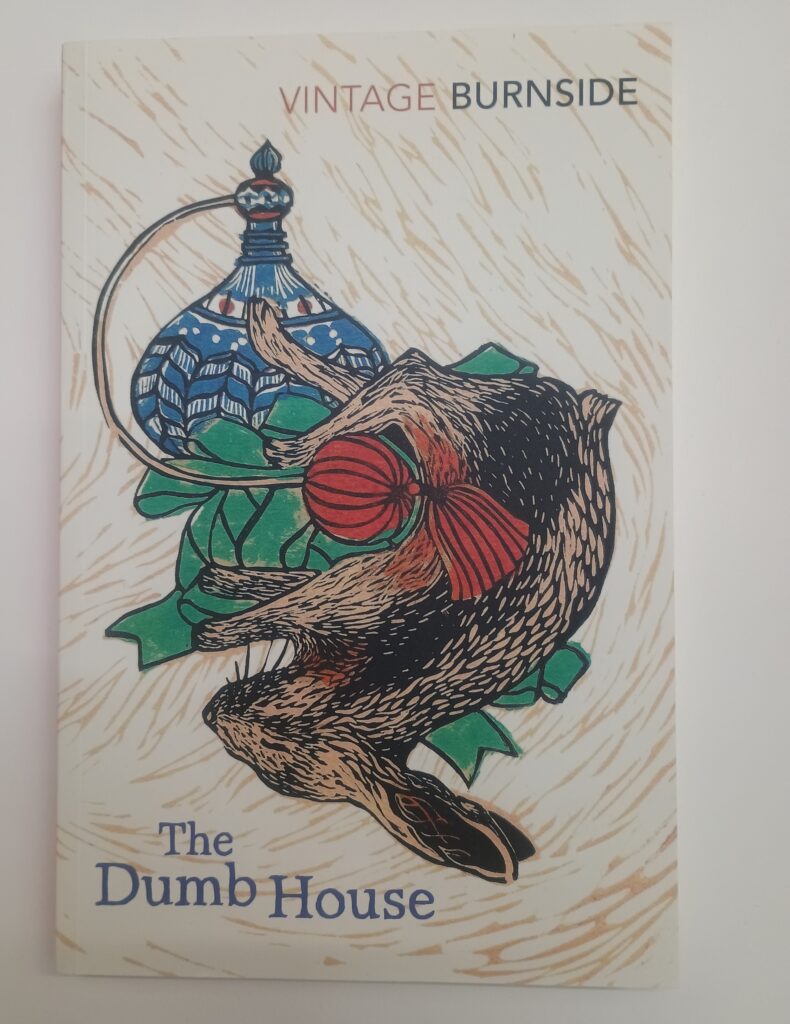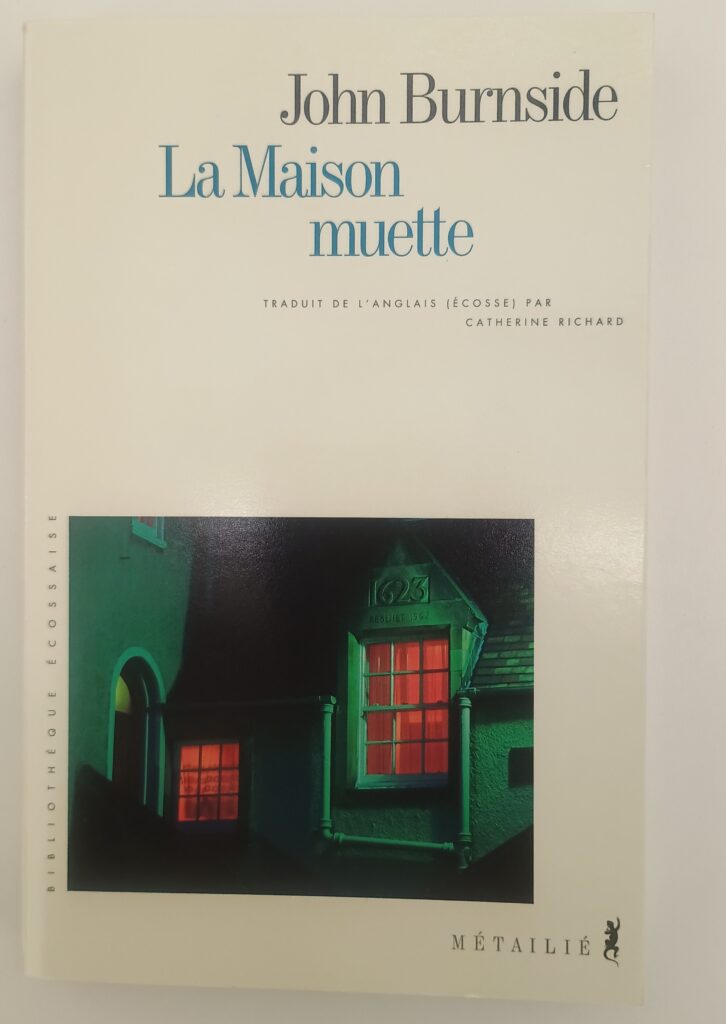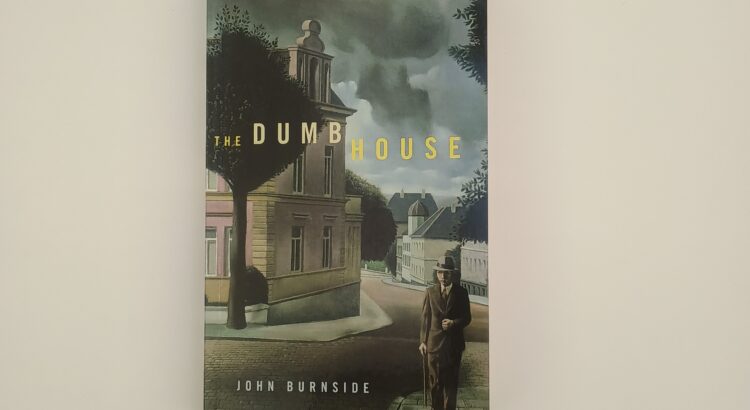The picture at the top of this blog is of the first edition of “The Dumb House: A Chamber Novel” (1997). The cover illustration is “The Letter” by Dutch painter Carel Willinik
In 2023 Scottish writer John Burnside (1955-2024) won the prestigious David Cohen Prize for Literature. Previous winners of the prize (which is in recognition of an entire body of work) include V.S. Naipaul, Muriel Spark, Harold Pinter and Tom Stoppard. It was an overdue acknowledgement of Burnside’s work. When Hermione Lee presented him with the prize she said “he has been writing every imaginable kind of book – and some unimaginable kinds – for at least 35 years”.That lifetime of achievement sadly came to an end when we lost Burnside on 29th May 2024.
Burnside’s first poetry collection “The Hoop” was published in 1988. Over his career he published 17 collections of poetry, 10 books of fiction, 3 memoirs and a collection of essays. He published his 17th poetry collection “Ruin, Blossom”on April 11th 2024 and was scheduled to talk about the book at an event at the Edinburgh International Book Festival. The event instead became a celebration of his life and work by fellow writers.

Cover of the 2015 reissue of “The Dumb House” as a Vintage Classic. Illustration by Liz Myhill.
Burnside was unusual in being equally adept at poetry, novels and memoirs. His 2006 autobiography “A lie about my father” was awarded Scottish book of the year and his 2011 poetry collection “Black Cat Bone” won the T.S. Eliot Prize and the Forward Prize. His first novel “The Dumb House: A Chamber Novel” (1997) has recently become a hit with a new generation of readers on Instagram and TikTok. Search YouTube and you will find several video reviews of the novel.
“The Dumb House” is a dark and disturbing novel. It is told in the first person by Luke, who tells us about terrible things he has done in a very matter of fact way, that makes the book all the more chilling. We initially have some sympathy for Luke but it quickly becomes clear he is a madman but by this point we are captured by both his voice and his story. The tone of the novel is clear from the first sentence “No one could say it was my choice to kill the twins, any more than it was my decision to bring them into the world”.
Luke is obsessed with the Persian myth of Akbar the Great which his mother told him as a bedtime story. Akbar built a palace which he filled with newborn children who were looked after by mutes in an experiment to discover whether language is innate or acquired. The palace of silent children becomes known as the Gang Mahal or Dumb House. Luke sets up a similar experiment with his own twin children in the cellar of his house. When the twins begin to communicate with each other via near constant wordless song, Luke feels marginalized and plots a terrible end for them.
Novelist A.L. Kennedy said when it was published that “”The Dumb House” is a wonderfully disturbing book – chillingly focused and lyrically amoral with moments of remarkable stillness and beauty. A poetic novel in the best and most troubling sense”. It was through works like “The Dumb House” that Burnside dealt with and finally vanquished the demons that pursued him from a troubled childhood and early adult life.

Cover of the 2003 French translation of “The Dumb House”, translation by Catherine Richard. Photograph by Vittoriano Rastelli.
Burnside was born in Dunfermline in March 1955, he had a twin who died in the womb. The family moved to Cowdenbeath and then to Corby when John was 11. He had a difficult relationship with his abusive and alcoholic father. His father would tell elaborate stories about his own parents, but after his death his son discovered the truth about his father’s background. He was a foundling, abandoned on a Fife doorstep who spent his life weaving elaborate myths about his origins. As a young adult John Burnside had his own struggles with addiction and was hospitalised after a mental breakdown. In the mid 1980s he began to turn his life around, getting a steady job as a computer engineer in Guildford and starting to publish poetry. In 1996 he moved to the East Neuk of Fife with his wife Sarah. He was appointed Professor of Creative Writing at the University of St Andrews in 2009, where his colleagues included poets Kathleen Jamie and Don Paterson.
Writing was much more than a means of self expression for Burnside, it was a lifeline and a way to come to terms with his past. In 2006 he published a memoir about his relationship with his father and his own later struggles called “A Lie About my Father”. His first three novels were very dark but writing a memoir seemed to lift the darkness from his life and work.
Novelist Sarah Perry wrote after Burnside’s death “I think greatness is matched with kindness more often than we think, and he had so much of both”. After his death the prolific Burnside’s poems continued to appear in the many journals that he contributed to including “The New Statesman” and “The London Review of Books”. This hopefully means that we can look forward to a posthumous collection of poems. For over a decade he had also contributed a column on the natural world to “The New Statesman”, and a selection of these would make an excellent book. By the time of his death Burnside had outrun his demons and found a new life for himself through his writing and teaching, his wife and their two children and his first grandchild Apollo.
